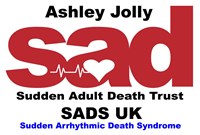The Critical Need for Mental Health Funding and Research
Mental health research remains significantly underfunded compared to other medical conditions, despite affecting one in four people globally. Current funding gaps mean that innovative treatments, prevention strategies, and support systems are not being developed at the pace needed to address the growing mental health crisis.
Community-based funding initiatives play a vital role in bridging these gaps by supporting grassroots research projects, local support programs, and awareness campaigns. These efforts complement larger institutional funding by focusing on specific populations and innovative approaches that might not receive traditional research grants.
The economic impact of untreated mental health conditions extends far beyond individual suffering, costing the global economy over $1 trillion annually in lost productivity alone. Investment in mental health research and support systems generates significant returns through reduced healthcare costs, improved workplace productivity, and enhanced quality of life for millions of individuals and their families.



